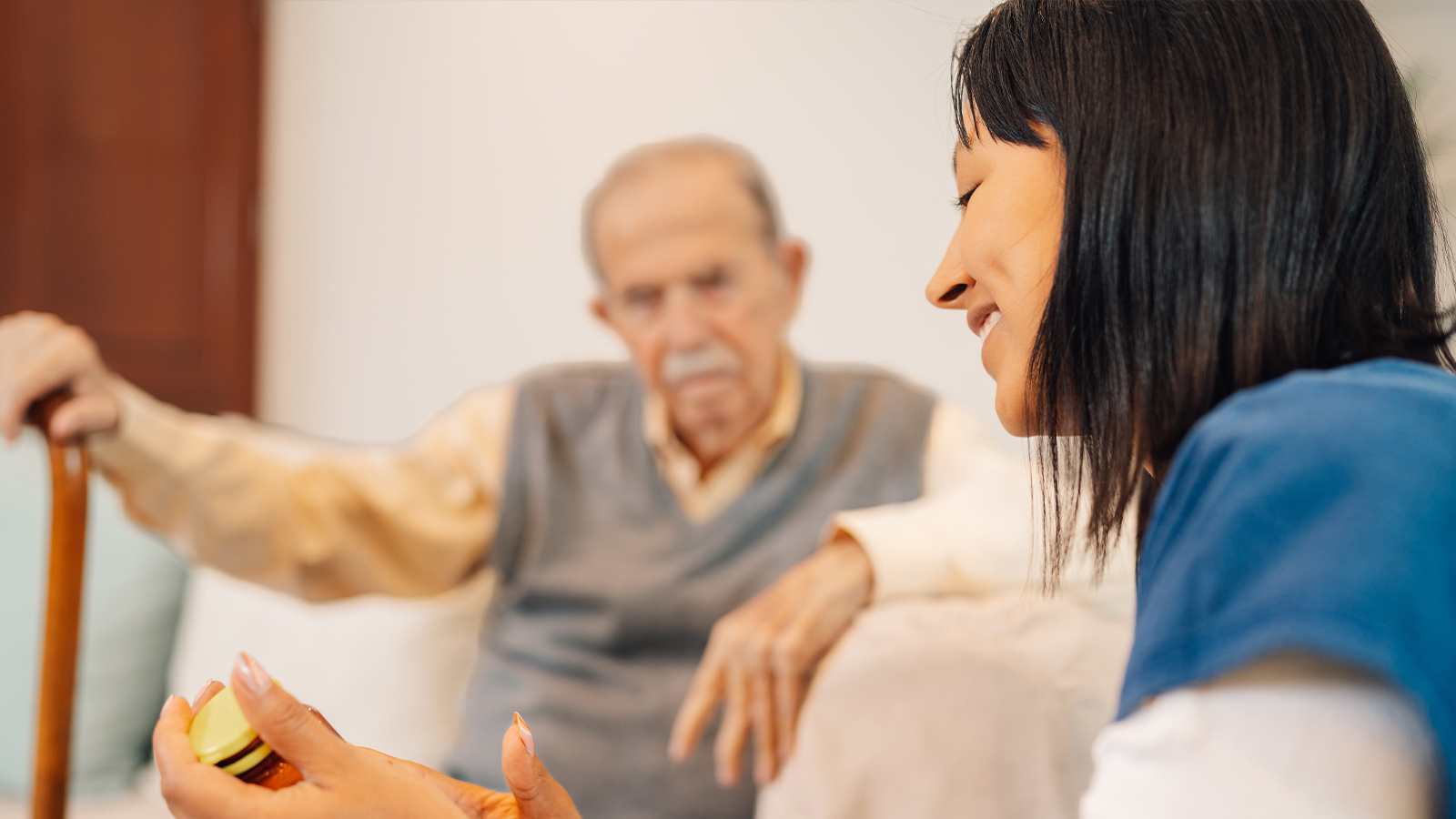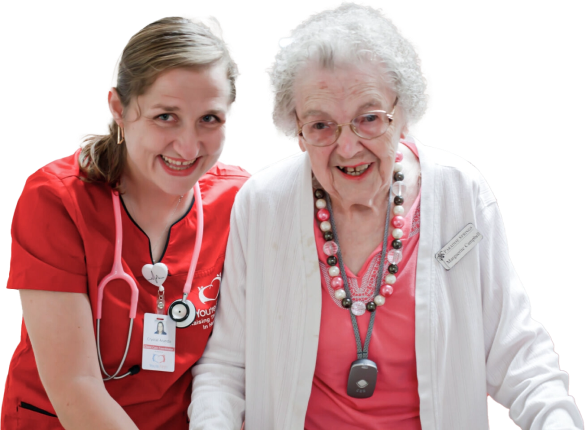Differences Between Companion Care and Personal Care?
Mar
10
2025
When looking into caregiving services for an aging loved one, it’s important to know the difference between companion care and personal care. These in-home care options provide varying levels of support, tailored to the unique needs of seniors or individuals with disabilities. Understanding the difference between personal care or companion care helps you choose the best care services for your family member.
Companion care provides emotional support and companionship. It also includes assistance with light housekeeping and social activities. Personal care services provide hands-on help with daily living activities (ADLs) like bathing, dressing, and mobility. Knowing the scope of each senior care option is key to finding the best fit for your loved one’s needs.
Key Takeaways
- Companion care services aim for social and emotional support, while personal care assists with essential daily tasks
- Companion caregivers help with light housekeeping and social engagement, but do not provide physical assistance
- Personal caregivers are trained to assist with ADLs, such as bathing, dressing, and mobility
- The choice between companion care vs personal care depends on the individual needs and abilities of the senior
- Understanding the differences between these two types of in-home care is essential for selecting the right home care service.
Introduction
As your loved ones age, the extent of the care they need may escalate, surpassing what family caregivers can manage. In such cases, many families opt for professional home care services. These services cater to different care levels, including non-medical care services like personal and companionship support.
Companion caregivers can help with social interaction, emotional support, and assistance with daily tasks. It’s perfect for seniors who are generally healthy but may feel lonely or need help with simple tasks.

Personal care services aim to offer more intensive assistance. It addresses the physical needs of seniors, helping with activities of daily living (ADLs) like bathing and dressing. Personalized care assistants (PCAs) are trained to provide this support while respecting the dignity and autonomy of the care recipient. The right in-home care service provider will develop a plan of care to include ADL care and should include socialization.
Deciding between companion care and personal care hinges on your loved one’s specific needs and preferences. Understanding the differences between these home care services is key to making an informed choice. This article aims to guide you in selecting the most suitable care provider for your aging family member’s unique needs.
Defining Companion Care and Personal Care
Understanding the different types of care for a loved one is key. Companion care and personalized care services are two options that offer support but vary in focus and assistance level.

Understanding Companion Care
Companion care is for those looking for non-medical home care. This level of care focuses on emotional support and daily tasks. It aims to combat loneliness and enhance well-being. Care workers assist with meal prep, housekeeping, errands, and social activities.
Companion caregivers can also remind about medication and appointments. Care frequency ranges from several hours a day to 24/7, based on needs and which hands-on care is right for the individual.
Exploring Personal Care
Personal care, or custodial care, involves hands-on assistance with hygiene and physical needs. Workers help with bathing, dressing, and feeding. They also assist with mobility and light housekeeping.
It’s essential for the elderly or those with chronic conditions to help them maintain a high-quality of life.
Key Differences Between Companion Care and Personal Care
Understanding the differences between personal care and companion care is essential for seniors’ in-home care. Both types aim to support older adults in maintaining independence and quality of life. Yet, they vary in the level of assistance, services covered, caregiver qualifications, and appropriate situations.
Types of Services Covered
Companion care services include:
- Social interaction and companionship
- Meal planning and preparation
- Light housekeeping tasks (e.g., laundry, vacuuming)
- Transportation to appointments and social gatherings
- Grocery shopping and errands
Personal care provider services, in addition to the above, also involve:
- Physical assistance with bathing, dressing, and grooming
- Assistance with toileting and incontinence care
- Mobility support and transfer assistance
- Monitoring vital signs and changes in condition
- Medication reminders
Caregiver Qualifications and Training Requirements
Personal caregivers need formal training and certifications, such as being Certified Nursing Assistants (CNAs) or Home Health Aides (HHAs). This training prepares them to handle complex client needs, especially in elder care. Companion caregivers, while not needing medical training, must have strong interpersonal skills and be reliable, compassionate, and patient.
When Each Type of Care is Needed
Companion care is ideal for seniors needing social support and light household assistance. It’s perfect for those who feel lonely or isolated, or whose family members live far away. Personal care, on the other hand, is necessary for those needing hands-on assistance with personal hygiene, mobility, and basic medical needs. As the population ages, the demand for personal assistance services is expected to grow significantly, with projections indicating that by 2030, approximately 20% of the U.S. population will be 65 years or older.
Are you a family care giver in need of a break? Discover our Respite Care services.
In-Depth Look at Companion Care
Companion care is a vital service that offers social interaction, emotional support, and daily task assistance. It helps seniors stay independent and maintain a good quality of life. This care is essential for older adults facing social isolation.
Primary Goals of Companion Care
The main objectives of companion care are to combat loneliness, provide companionship, and assist with light housekeeping. Caregivers engage in activities like walking, reading, and playing games. These activities help slow down the progression of dementia or Alzheimer’s disease. Social interaction and engagement are key to preserving cognitive function in seniors.

Who Benefits From Companion Care?
Seniors living alone or spending a lot of time alone greatly benefit from companion care. Those experiencing social isolation face higher risks of health issues like dementia, heart attack, and depression. Companion care offers social interaction and support needed to reduce these risks and enhance overall well-being.
Common Companion Care Activities
Companion caregivers help with various daily tasks, including:
- Preparing meals – better nutrition
- Doing laundry
- Light housekeeping duties
- Providing transportation to appointments
- Engaging in hobbies and activities
These tasks help seniors maintain their independence and quality of life. They also provide the companionship and social interaction they need for a better quality of life.
Limitations of Companion Care
Companion care is designed to offer many benefits but has its limitations. It does not include medical assistance or help with personal hygiene tasks like bathing or dressing. If your loved one needs more extensive assistance, such as medication reminders, assistance with activities of daily living, blood pressure or change in condition monitoring, a caregiver with a healthcare background might be more suitable.
In-Depth Look at Personal Care
Personal care is essential for those who find it hard to do daily tasks on their own. It’s perfect for seniors with physical or cognitive issues. This care ensures their safety, comfort, and well-being.
Primary Goals of Personal Care
The main aim of these in-home care services focus on helping individuals keep their quality of life. Caregivers assist with vital daily tasks like bathing, grooming, dressing, and feeding. This support helps seniors keep their dignity and independence, even with aging or health problems.
Who Needs Personal Care?
Seniors with chronic health issues, mobility problems, or advanced dementia often need ADL support care. About 60% of seniors need help with bed-to-walk mobility. Those struggling with personal hygiene tasks, like bathing and grooming, also benefit from caregiver support.
Common Personal Care Activities
Some key personal care activities include:
- Bathing and grooming assistance
- Dressing and undressing
- Toileting and incontinence care
- Feeding and nutrition support
- Mobility assistance and transfers
- Monitoring of vitals and changes in condition
Personal caregivers also monitor medication intake, ensuring seniors take them correctly. Research shows that reminders from caregivers boost medication compliance by 50%.
Limitations of Personal Care
Personal care offers a lot of help with daily tasks but doesn’t cover medical services like wound care or medication administration (prescribing, filling pill containers, etc.). For those needing specialized medical care, home health services might be needed. Yet, personal care is a great addition to medical care, ensuring seniors get the full support they need.
Choosing the Right Type of Care for Your Loved One
Choosing the right care for your loved one starts with a detailed care assessment, like our SmartCare Assessment. This step is essential to evaluate their individual needs, preferences, and overall health to ensures an effective plan of care is developed. Understanding the signs for companion care or personal care helps make a well-informed decision. This ensures your loved one gets the support they need.
Assessing Individual Needs and Preferences
Every senior has unique care needs and preferences. Some may value social interaction and emotional support, while others need hands-on help with daily tasks. It’s important to discuss their wishes and assess their physical, emotional, and cognitive abilities. This helps determine the most suitable care type.
Signs Your Loved One May Need Companion Care
If your loved one struggles with social interaction, household chores, or transportation, companion care might be the best choice. This type of care offers emotional support, reduces loneliness, and helps with light housekeeping and meal prep. It ensures seniors maintain independence while providing the companionship they need.
Signs Your Loved One May Need Personal Care
Physical limitations, mobility issues, or the need for personal hygiene assistance indicate the need for personalized care assistance. Care providers handle the physical aspects of the job, preventing infections and improving health. If your loved one finds these tasks challenging, personal care services might be necessary.
When to Transition from Companion Care to Personal Care
As your loved one’s needs evolve, transitioning from companion care to personal care might be necessary. Regularly assessing their physical and cognitive abilities helps identify when more support is needed. Monitoring their condition and being proactive about care transitions ensures they receive the right level of assistance as their needs change.
Summary – Personal Care or Companion Care?
When considering care options for your loved one, it’s vital to grasp the distinction between personal and companion care. Companion care emphasizes social support, engaging activities, and assistance with daily tasks like meal prep and transportation. It’s perfect for seniors facing loneliness or depression, aiming to enhance their quality of life and emotional state.
Personal care, in contrast, involves direct help with daily living activities such as bathing, dressing, and toileting, alongside instrumental activities. Caregivers in this role must have formal training, like being Certified Nursing Assistants (CNAs) or Home Health Aides (HHAs). The specific care needed depends on the individual’s daily living requirements, guiding the choice of caregiver.
Choosing between companion and personal care hinges on your loved one’s unique needs and desires. This choice supports their independence, safety, and quality of life as they age at home. Remember, care needs evolve, so it’s essential to reassess and adjust support levels regularly. By understanding these home care options, you can make a well-informed decision that prioritizes your loved one’s well-being.
Frequently Asked Questions – Companion Care and Personal Care Services
What is the main difference between personal care and companion care?
Companion care offers emotional support and assistance with daily tasks. Personal care, on the other hand, provides direct physical help with activities like bathing and dressing.
What types of activities do companion caregivers help with?
Companion caregivers assist with hobbies, meal preparation, laundry, and transportation. They also provide emotional support and companionship.
Who can benefit from companion care services?
Seniors living alone, experiencing loneliness, or needing help with household tasks can greatly benefit from companion care.
What does personal care involve?
Personal care includes direct physical assistance with daily living tasks. This support is for those who struggle with these activities due to physical or cognitive issues. It covers bathing, dressing, grooming, feeding, monitoring of vitals and change in conditions.
Who typically needs personal care services?
Seniors with chronic health conditions, mobility issues, or advanced dementia often require personalized care assistance. It ensures their safety and quality of life.
How do I know if my loved one needs companion care or personal care?
Evaluate your loved one’s needs and preferences. A good in-home care agency can assist with this evaluation. Companion care is suitable for those needing social interaction and help with daily tasks. In-home personal assistance is necessary for those with physical limitations or hygiene needs.
Can my loved one transition from companion care to personal care as their needs change?
Yes, transitioning from companion to personal care is possible as needs evolve. Regularly assess and adjust care levels to meet changing requirements.
Do personal caregivers provide medical services?
No, personal care does not include medical services like wound care or medication administration. It focuses on non-medical assistance with daily living and hygiene.
Reach Out






